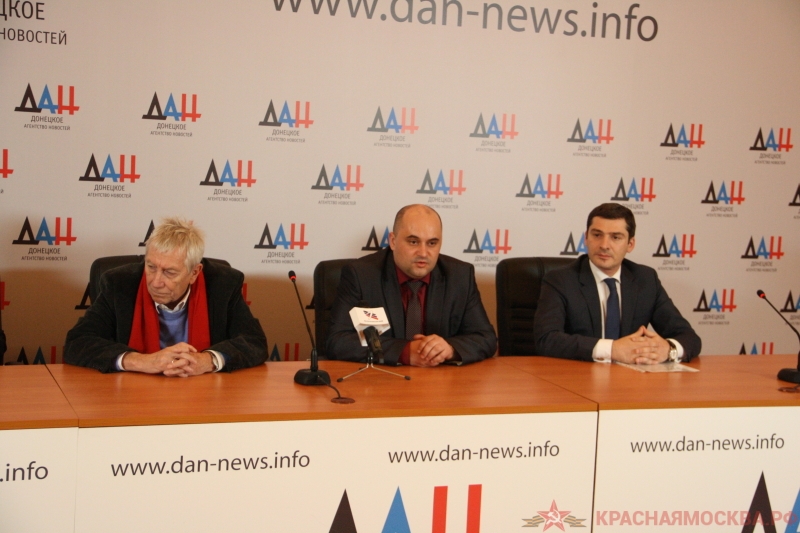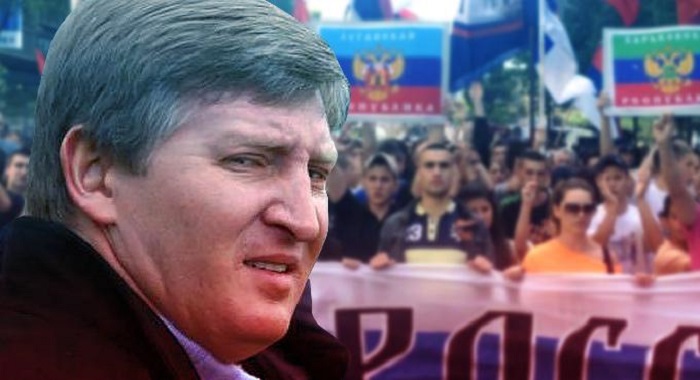Lately, the "People's Republics" in Eastern Ukraine have been forced to explain why living conditions are so bad despite the decline in fighting.
Residents of Eastern Ukraine, who were attracted to promises of generous Russian pensions, dirt cheap gas, and an unprecedented economic boom after breaking free from Ukraine, are now forced to reconcile with the reality that these promises have not come true, nor will they ever come true.
Myth 1: Ukraine should pay the pensions in the breakaway states
The Donetsk People's Republic has declared itself an independent state, and its pensioners are its citizens. So, the DNR's claims that an enemy state should be paying its own citizen's pensions are absurd. It is also worth noting that other Russia-supported breakaway states, Transdnistria, Abkhazia, and South Ossetia, do not receive payments from their de jure host countries.
Understandably, the "leadership" of the self-proclaimed republics would like pensions to be delivered, as cash, in large bags, on trucks labeled "Private," which could be captured and used for military purposes instead. However, their lives will not be this pleasant. This is not the fault of Kyiv, Washington, or Brussels; it is the fault of the bandits who have turned this region into wild lands.
Myth 2: The People's Republics will begin using Russian gas in the near future
This is impossible for both economic and logistical reasons. Gas, unlike firewood, needs a very expensive delivery and distribution infrastructure. If damaged during the fighting, local gas distribution stations can theoretically be repaired, and new pipelines built, but the DNR does not have the capability to do this. And, clearly, the Kremlin is not going to build them a new pipeline and then deliver free gas. Their primary focus is supplying Siberia, not Donbas.
Thus, Donbas can only get its gas through two sources: Ukrainian or not at all.
Myth 3: The republics will be integrated into the Russian industrial chains and operate with Russian manufacturing wages
This is the myth which lured many residents into supporting the separatists at the time of the referendum, and today it remains a dream only for the most hardened supporters of the DNR.
All Russian actions suggest opposite intentions. If the Russians were planning such an integration, they would have sent engineers, not neo-fascist gangs, to run Eastern Ukraine. If they were planning for integration, they would have supplied more manufacturing equipment, not stolen what was already there for use in Russia. If Russia were planning on using the mines in Donbas, the Russian soldiers would not have calmly flooded them. Russia is simply destroying the infrastructure in Donbas so, one way or another, Kyiv will have the financial burden of repairing it.
Myth 4: The Donbas infrastructure will be repaired for the Winter
Logically, infrastructure which is over 70% destroyed cannot, and will not, be repaired by authorities who do not care about its well-being. The quality of public services in the rest of Ukraine provides ample evidence of this fact.
Furthermore, even with the motivation of producing weapons, the DNR and LNR are openly headed toward infrastructural collapse. The lack of energy caused by closing the coal mines, lack of coordination between public services, and devastating war damage leaves no possibility of a warm, lit, or comfortable Winter.
Myth 5: Kyiv will be forced to negotiate for the use of the coal mines in Donetsk
This myth still appears in local Donbas papers as an argument in favor of the fact that "everything will be fine." However, the fact that Kyiv had to allocate subsidies of over 60 billion UAH [$7.5 billion USD] between 2009 and 2014 for the coal industry, that the mines are now flooded, and that much of the equipment is now scrap metal, we can safely assume that Kyiv will not pull the domestic coal industry out of the hole it is currently in. Today, it is not only cheaper to buy coal through Poland and South Africa, but also New Zealand. The lack of commentary on how "we feed you" from the suppliers is an added bonus, as the Donbas will no longer have any illusions that they are the most integral part of the Ukrainian economy.
In fact, scrutiny of the myths of the Ukrainian "People's Republics" can continue on for hours as evidenced by the gap between the doctrines of Novorossiya and the reality Donbas residents find themselves in now.
However, despite these myths, which have resulted from the plentiful anti-Ukrainian propaganda in the Donbas, the residents of the occupied territories have not lost their right to be Ukrainian citizens. In Kyiv, the lawmakers are well aware that many people were held against their will by terrorists and occupiers. Thus, every Donetsk and Luhansk resident can still receive their Ukrainian pension, but only in territory currently controlled by the Ukrainian state. There is already a mass exodus of pensioners to nearby, unoccupied oblasts.
For the same reason, Ukraine has not stopped the flow of electricity, gas, or water to the Donbas, despite their technical ability to do so.
Donbas residents should not put their faith in these myths but, rather, need to understand one simple fact: Putin is not going to feed them.





